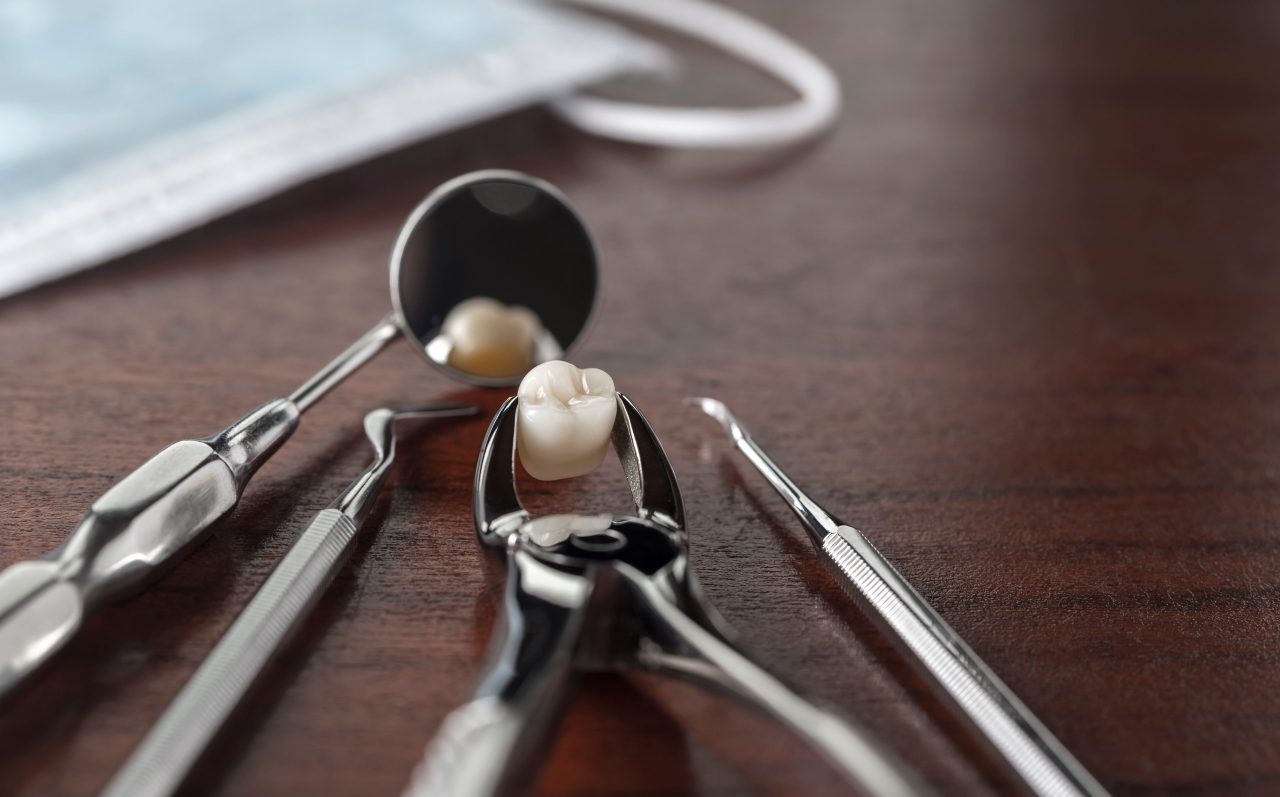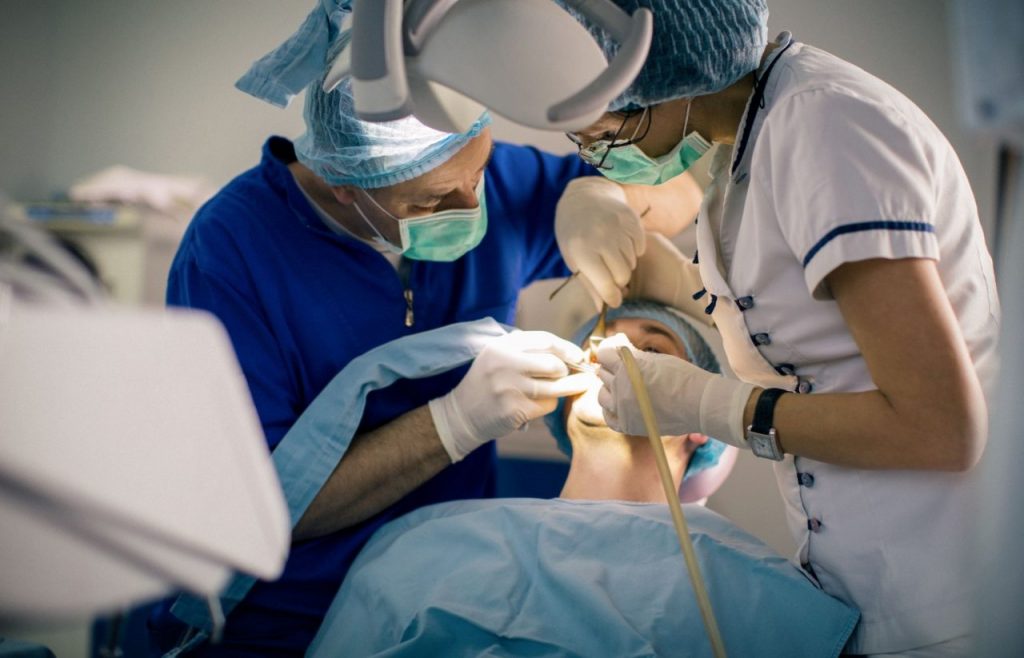Oral surgery or more precisely oral maxillofacial surgery is a collective term for dental treatments involving surgical intervention, performed by an oral surgeon. This covers many things from extractions to complex bone transplantations.
The oral surgery procedures in dentistry are typically surgical tooth extractions, sinus lifts, bone grafts, lateral bone augmentations, bone transplantations and dental implantation. Thanks to the latest technologies almost everyone (depending on personal biology) with missing teeth or even fully toothless patients can get permanent teeth with the help of oral maxillofacial surgery. A complicated root situation can also occur with normal teeth requiring a surgical treatment to be able to be removed.
Many times, when a dentist mentions dental surgery it is met with widespread panic and fear from their patients. The idea is that dental surgery is a painful and expensive procedure.
However, what many patients don’t realize is that dental surgery is very common and includes procedures that address conditions that many people have and suffer from.
Each patient is different and every case is treated accordingly. For the most part, dental surgery is considered an outpatient procedure and patients can generally resume normal activity within a few days.

Before surgery
It is advisable to prepare for dental surgery in advance. Pay particular attention to oral hygiene in the days before the operation. During the operation, the patient’s mouth is at particular risk of decay. At Evergreen Dental, we take great care to ensure a sterile environment and the use of sterile instruments to eliminate the possibility of infection, so if the dentist deems it necessary during the pre-surgery consultation, he/she will prescribe a professional dental cleaning, which will be performed by our dental hygienists a few hours before the surgery.
What to expect after dental surgery?
- Swelling – Some swelling is normal after oral surgery. For most people, it increases for 2 or 3 days and then starts to go down after that. If your swelling and pain increase after 3 days, call the clinic for an appointment.
- Discomfort – You will have the most discomfort when feeling starts to return to your mouth.
- Bleeding – You can expect to have bleeding or “oozing” for the first 12 to 24 hours after surgery.

What to do after dental surgery?
- Cool the soft tissues above the surgical area icing (for example ice gel)
- Eat soft, milk-free, pulpy meals
- You should also clean your teeth in the affected area, but gently, using a soft-bristled manual toothbrush
- When sleeping, make sure your head is in an elevated position
- Take your medicines as directed by your oral surgeon (both antibiotics and painkillers)
What NOT to do after dental surgery? (on the day of surgery and for 5-10 days afterwards)
- Do not smoke, drink coffee or alcohol
- Refrain from physical exertion, many speeches
- Do not eat meals with tiny seeds (they might hurt the wound)
- Do not touch the wound
- Do not suck or rinse the wound
- When sleeping, do not lie on the side where the intervention took place, if possible
- Do not spit (the resulting saliva can be swallowed)
- Avoid hot, humid places (e.g. sauna, swimming pool)
